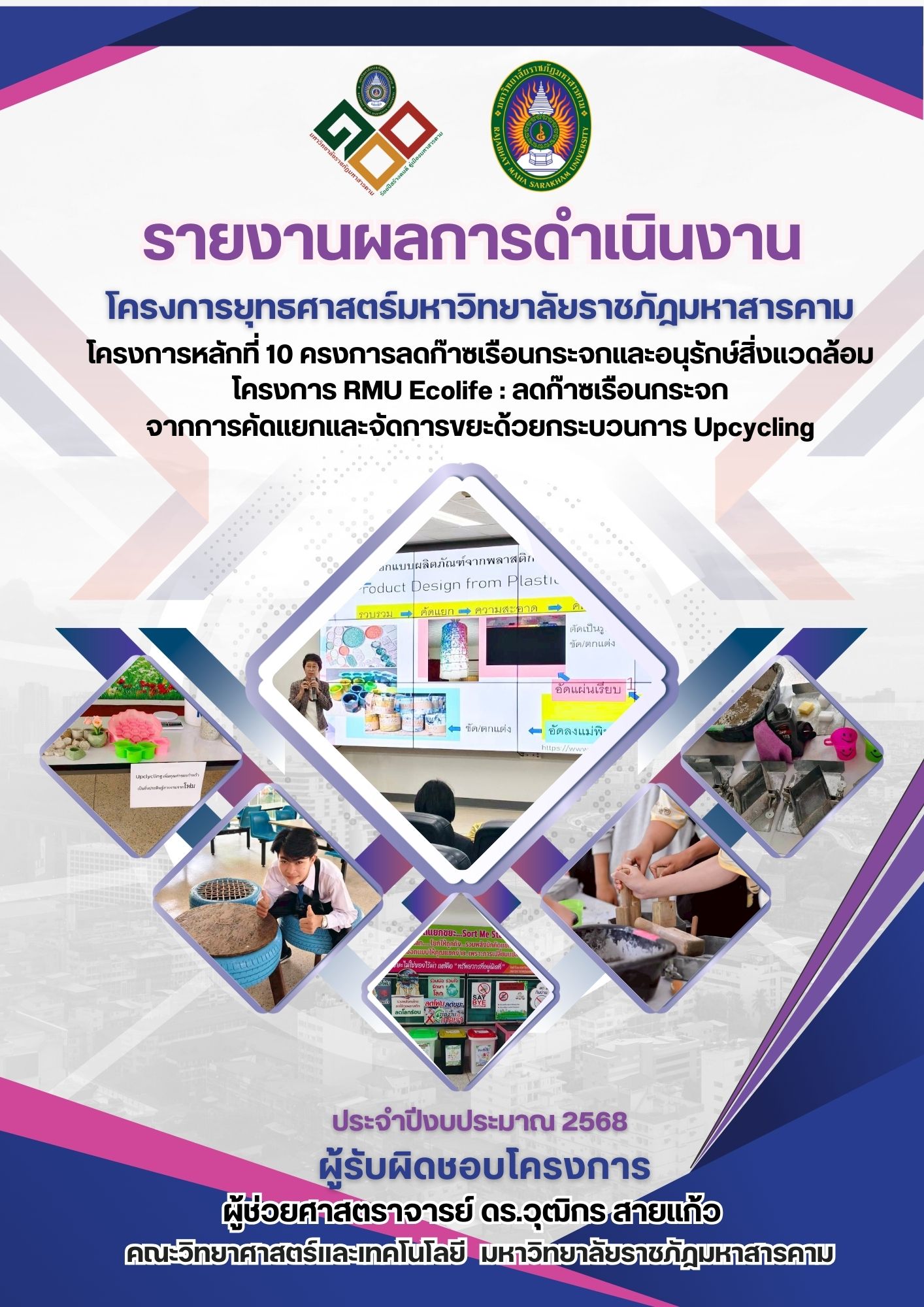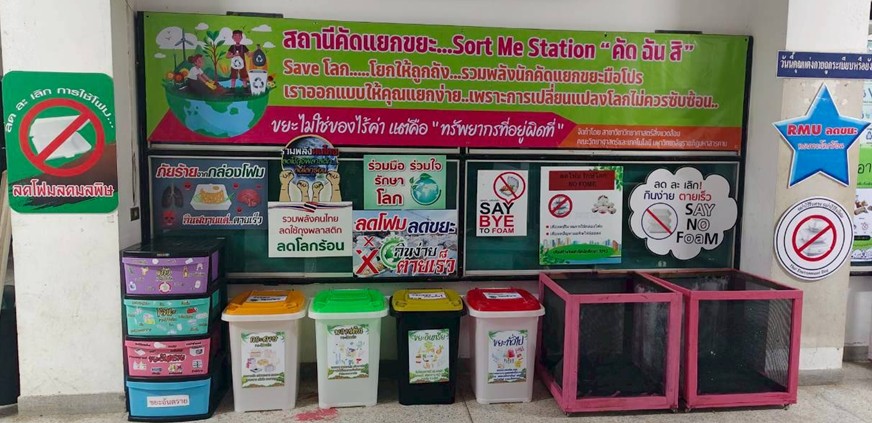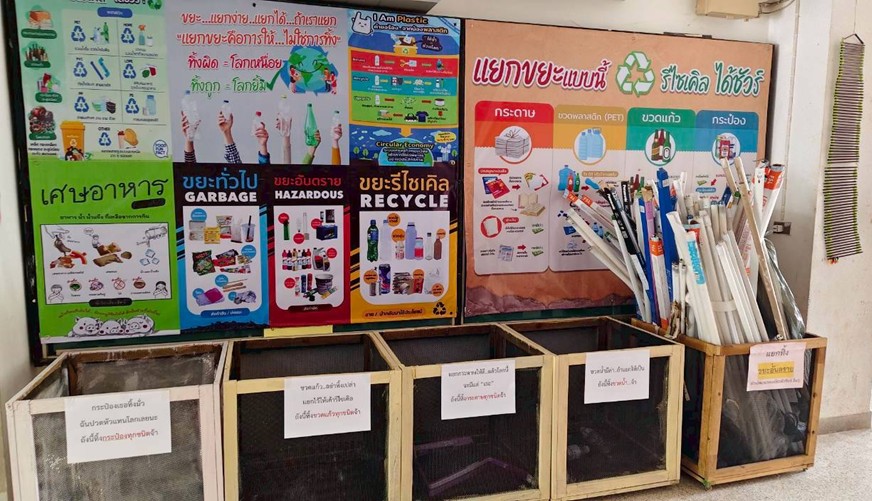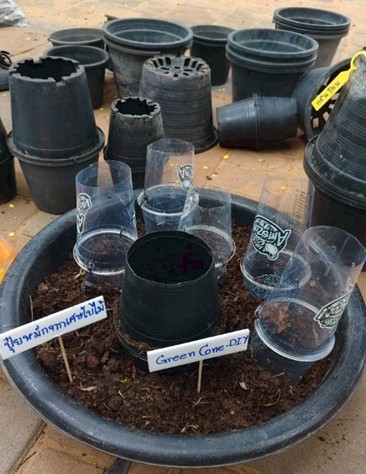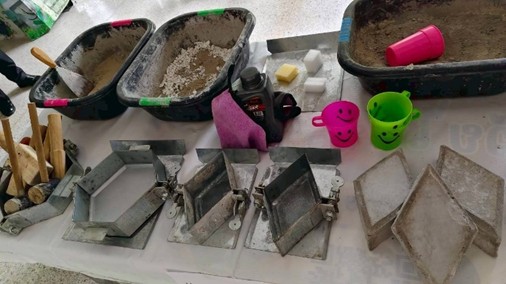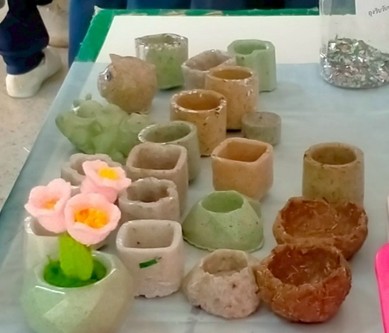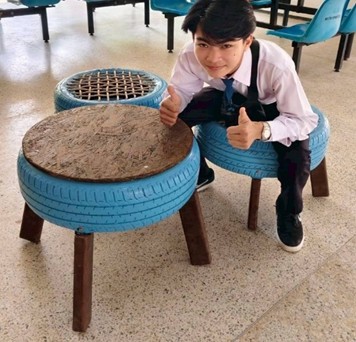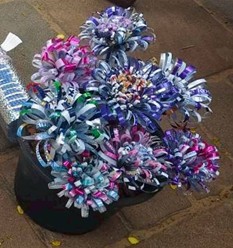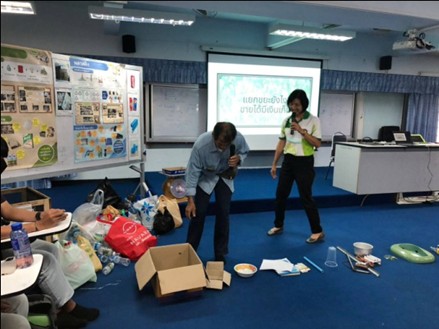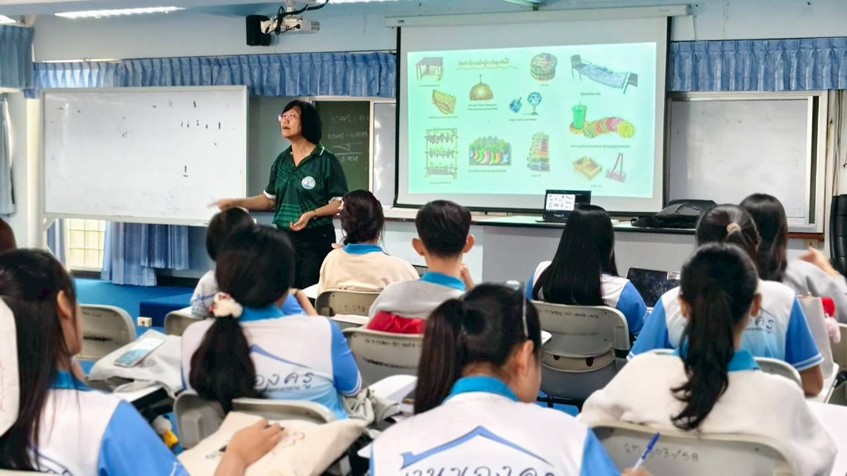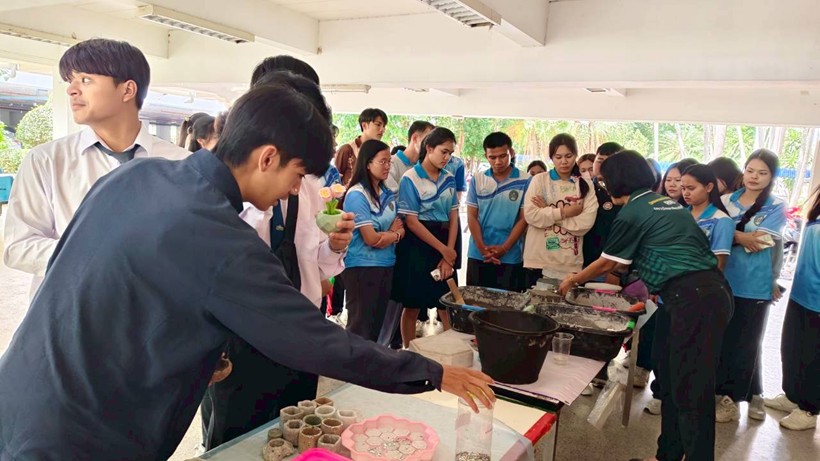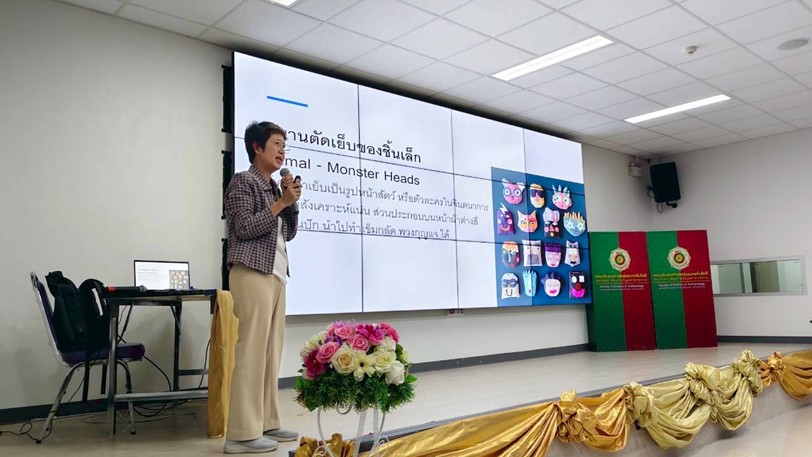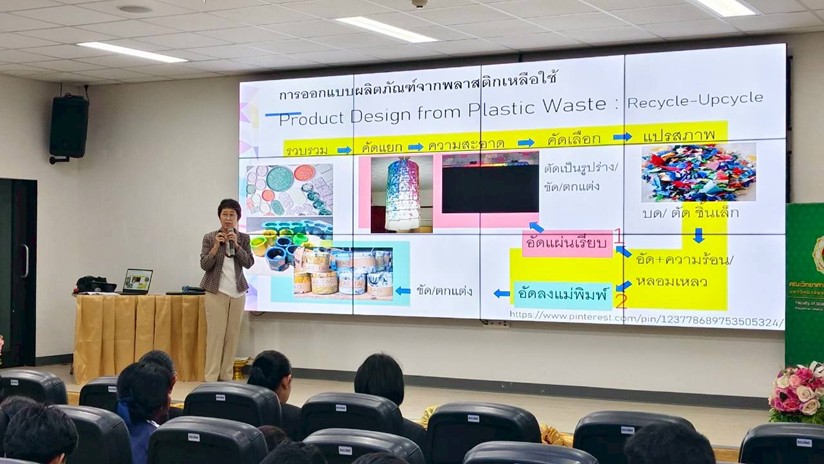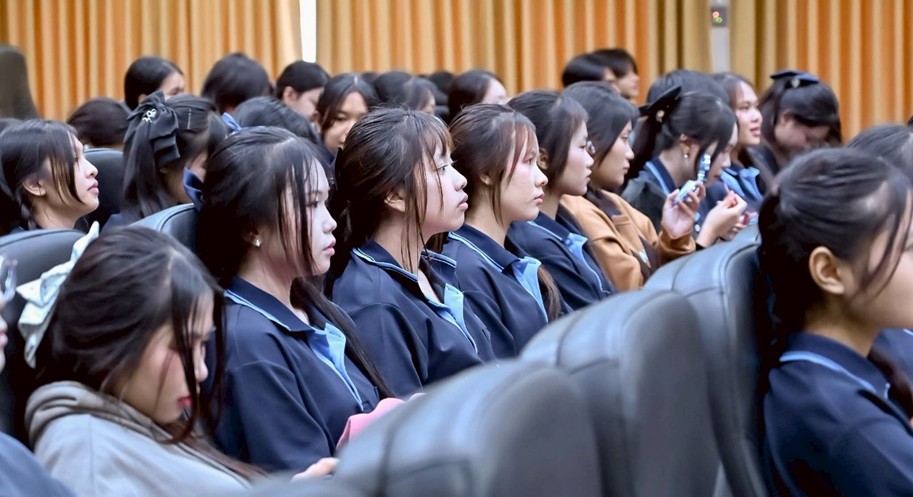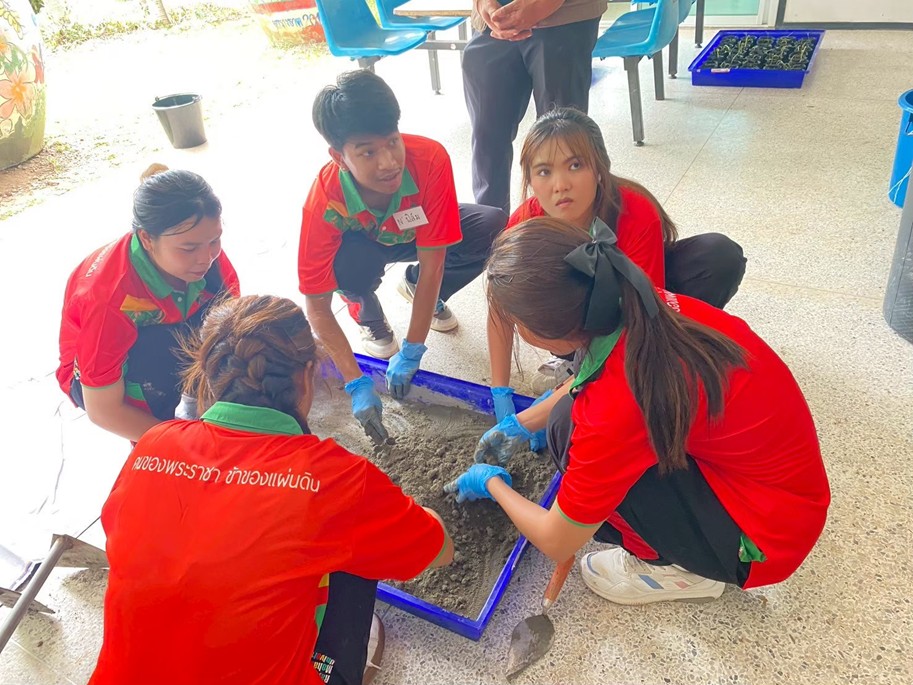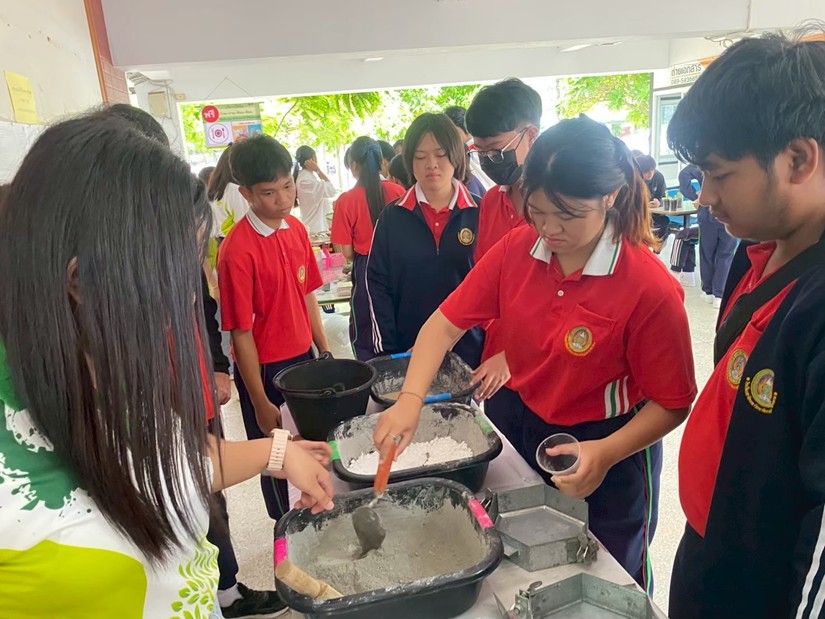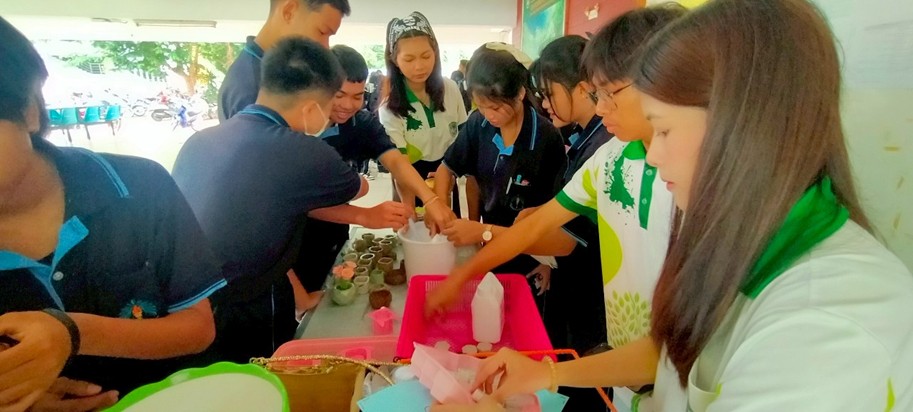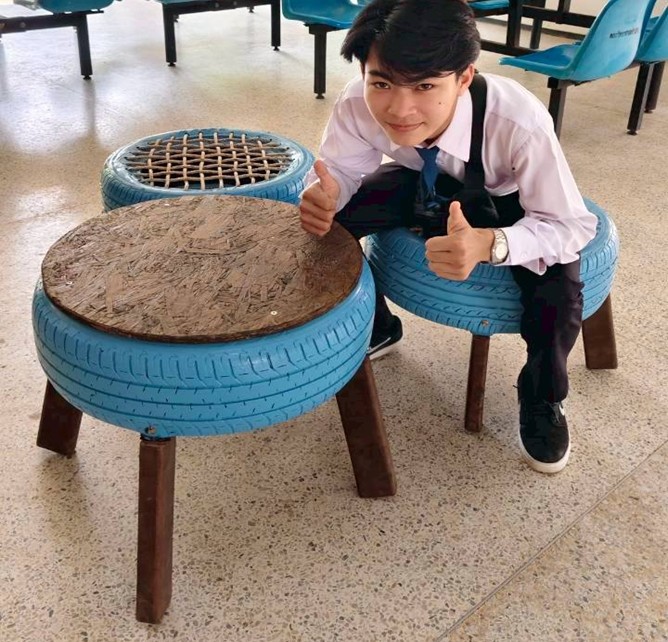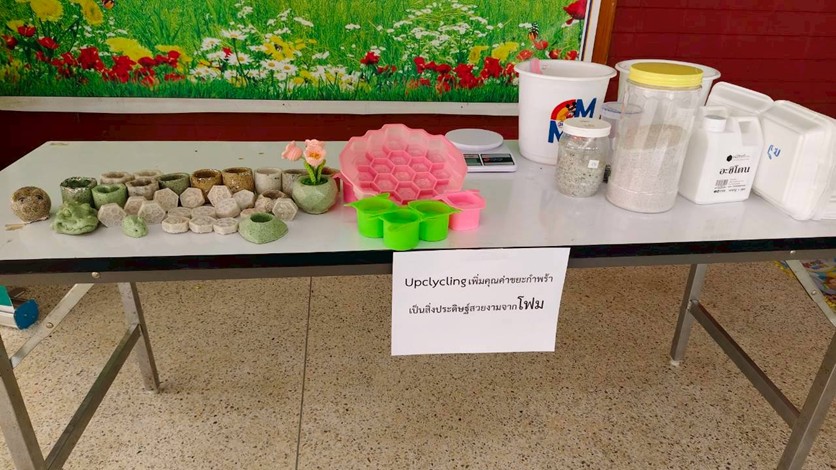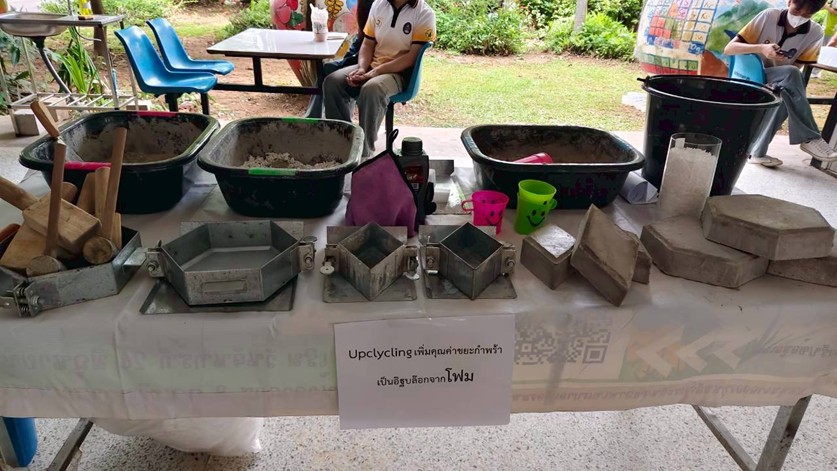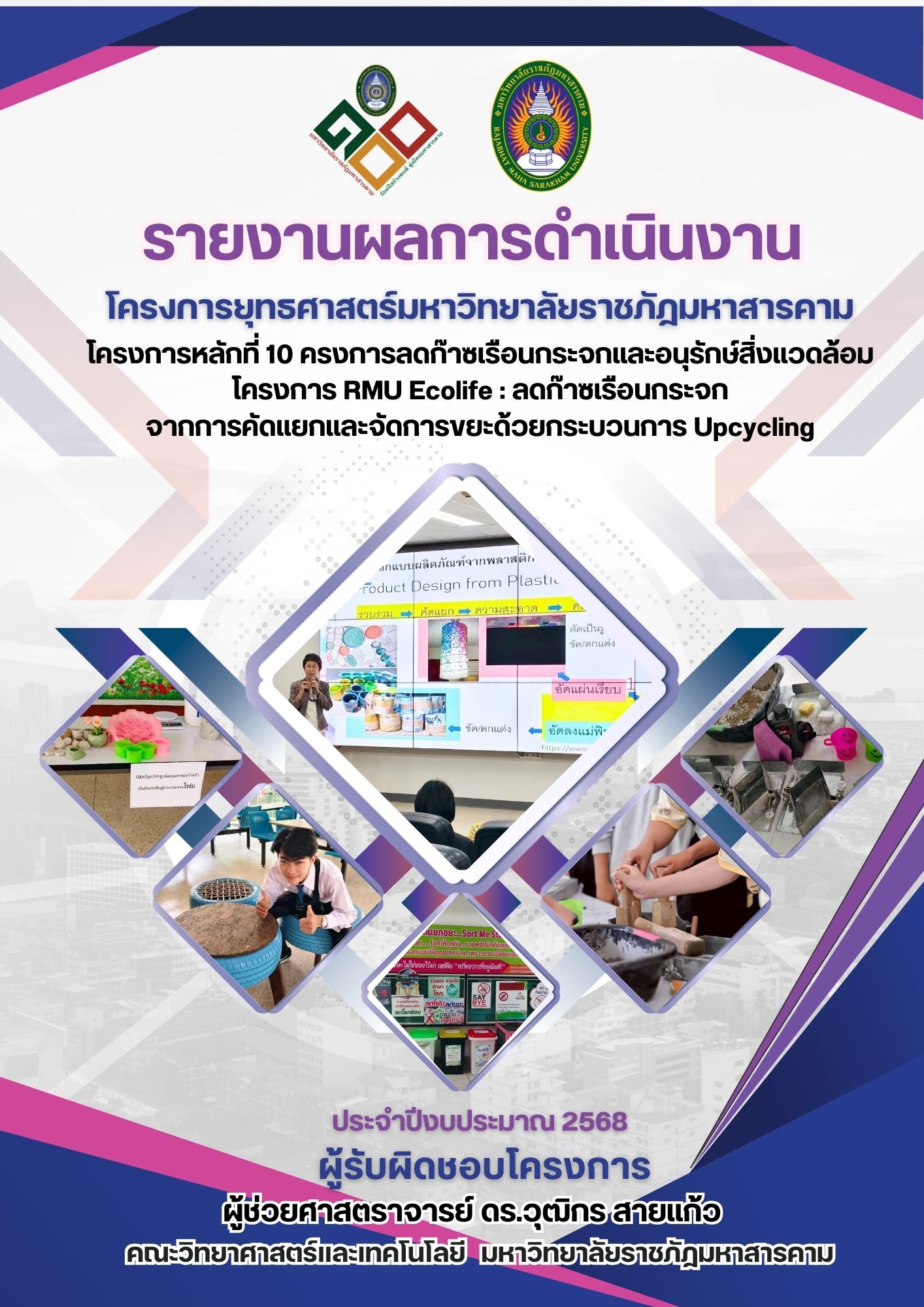
RMU Ecolife : Reducing Greenhouse Gas Emissions through Waste Sorting Using Upcycling Process
ผู้รับผิดชอบ ให้ข้อมูล : ผศ.ดร.วุฒิกร สายแก้ว
SDG ที่เกี่ยวข้อง
เป้าหมายย่อยความสอดคล้องกับยุทธศาสตร์มหาวิทยาลัย : พัฒนาระบบบริหารจัดการบนพื้นฐานธรรมาภิบาลและจริยธรรม
แหล่งงบประมาณ : งบประมาณแผ่นดิน
กลุ่มเป้าหมาย : ชุมชน
Project Implementation Area : มหาวิทยาลัยราชภัฏมหาสารคาม ตำบล Talat อำเภอ Mueang Maha Sarakham จังหวัด Maha Sarakham 44000
Project Duration: March 1, 2025 – August 31, 2025
Objectives :
1. To enhance knowledge, understanding, and practical skills in waste sorting and the upcycling of discarded materials among students, university personnel, and community members both within and outside Rajabhat Maha Sarakham University.
2. To promote the development of prototype products created the through upcycling process that generates added economic value.
3. To reduce the volume of waste requiring disposal and to assess the amount of greenhouse gas emissions reduced through waste sorting and upcycling activities.
4. To drive sustainable waste management initiatives among students and communities, linking them to the principles of a circular economy.
Activities :
Activity 1: Waste Sort and Greenhouse Gas Reduction Engagement Training: Becoming “Professional Waste Sorters,” emphasizing environmentally conscious sorting practices, understanding principles and techniques of waste separation and reducing greenhouse gas emission.
Activity 2: Upcycling Design Challenge, creatively transforming discarded materials into new, value-added, or commercially viable products
Number of project participants: 120 people
Project Budget: 50,000 Baht
Results :
1. Reduction of 127.90 kilograms of solid waste per building.
2. Reduction of 345.80 KgCO₂eq in greenhouse gas emissions.
3. Development of 12 upcycled prototype products.
4. Achievement of 1 institutional recognition or award related to greenhouse gas reduction (RMU-92 MKM-EE-02).
Results society :
The project raises awareness and encourages environmentally responsible behavior among staff, students, and surrounding communities. It enhances understanding of waste management and greenhouse gas reduction, leading to long-term behavioral change toward sustainable and responsible environmental practices.
Participation :
1. Participants gained practical knowledge of waste separation, waste management, and upcycling processes, applying them to real-world scenarios.
2. The project fostered creative thinking and innovation, allowing students to design and produce new products from used materials—for example, creating household items from foam and glass waste, or producing eco-bricks from recycled plastic and foam mixtures.
3. Participants developed awareness of greenhouse gas issues and learned to apply 3R principles (Reduce, Reuse, Recycle) in daily life to minimize waste and reduce emissions from disposal processes.
4. The project strengthened leadership, communication, problem-solving, and teamwork skills through collaborative group activities, benefiting both academic learning and future career development.
Project continuity :
1. Expand waste management and upcycling networks from university student groups to local schools and nearby communities to foster broader participation.
2. Initiate applied research on topics such as greenhouse gas reduction assessment, innovative upcycling product design, and the development of locally relevant circular economy models.
3. Create short courses and environmental learning materials—such as digital media, online videos, and training modules—for students and youth to support continuous learning and engagement in waste management and upcycling to reduce greenhouse gas emissions.
Problems obstacles :
The RMU Ecolife Project has not yet fully met the university’s performance indicator regarding the number of recognitions or awards for greenhouse gas reduction (RMU-92 MKM-EE-02). This shortfall arises because the LESS Project certification process requires post-activity data collection for at least 180 days. Consequently, in 2025, the university was unable to submit the certification request in time. The primary challenge is therefore the extended duration and complexity of the data collection process, which delays the achievement of measurable recognition within the current academic year.
Improvement :
To achieve project indicators, activities should be planned in advance to align with the LESS certification timeline. Continuous monitoring and data collection systems should be developed to ensure completeness and accuracy before the 180-day mark. Clear communication and coordination with relevant departments are essential. Each step should have a designated responsible person, and contingency plans should be prepared in case of incomplete data, such as supplemental data collection or extension requests. These measures will ensure that project outcomes are eligible for recognition or awards in a timely manner.
Suggestions :
1. Expand the project’s impact to surrounding schools and communities by establishing a regional network for waste management and upcycling, thereby encouraging community-wide participation.
2. Develop action research initiatives focused on greenhouse gas reduction assessment, innovative upcycling product design, and locally adapted circular economy models.
3. Develop short courses and environmental education materials, including multimedia resources, online learning content, and training modules for students, to integrate upcycling and waste management into sustainable education and practice aimed at reducing greenhouse gas emissions.
